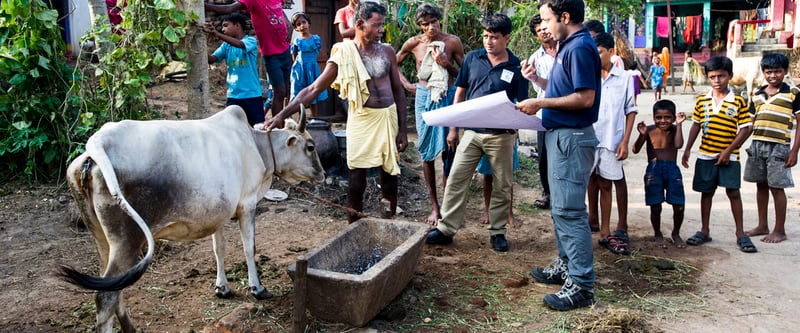
Preparing India’s National Disaster Response Force to protect animal lives in emergencies
News
We are working with India’s front line in disaster response, helping them to help save animal lives during disasters.
Year after year, we endure cyclones, droughts, floods, landslides and earthquakes in India. As a nation we continue to be vulnerable to devastating disasters.
During disasters it is not only people who suffer, animals do too: thousands lose their lives, and many more are injured and lost.
Now, animals across India will be better protected during disasters. With, 34 members of the National Disaster Response Force (NDRF), recently attending our major training exercise on the Management of Animals in Emergencies.
The six-day training workshop, held in Assam, included evacuation drills and training techniques: to equip search and rescue personnel to respond to the urgent, and longer term, needs of animals in emergencies.
We conducted the training sessions, the first of its kind in India, in association with the National Disaster Response Force (NDRF), College of Veterinary Sciences, Assam, and the Policy Perspective Foundation.
Attending the training, Shri Kiran Rijiju, Union Minister of State for Home Affairs, said: “Life in rural India is incomplete without animals. People are dependent on animals for both economic benefit and emotional needs, and so it is vital to protect animals in disaster.
“I thank World Animal Protection for taking up this noble initiative in India, to protect the lives of animals, and in turn safeguard the livelihoods of people who depend on them.”
Gajender Sharma, Country Director of World Animal Protection India, concluded: “NDRF is already doing commendable humanitarian relief operations. After these training session, they will be better prepared to help animals during emergencies too.
“In the future, we hope rescue teams will be well equipped to evacuate and help people and animals alike. With more than two-third of India’s rural population dependent on animals, the ability to better protect animals will help protect livelihoods.”